That violent popping sound from your exhaust system will undoubtedly turn
some heads. But what causes backfiring through the exhaust?
Backfiring through the exhaust can occur for a plethora of reasons,
including a rich fuel-to-air mixture, improper timing, issues with the
spark plugs, leaks in the exhaust system, carbon tracking, lousy oxygen
sensors, and valve train problems that leave unburned fuel in the
cylinder, causing an explosion.
In the following sections, we'll go over the causes one by one before
telling you how to fix the issues.
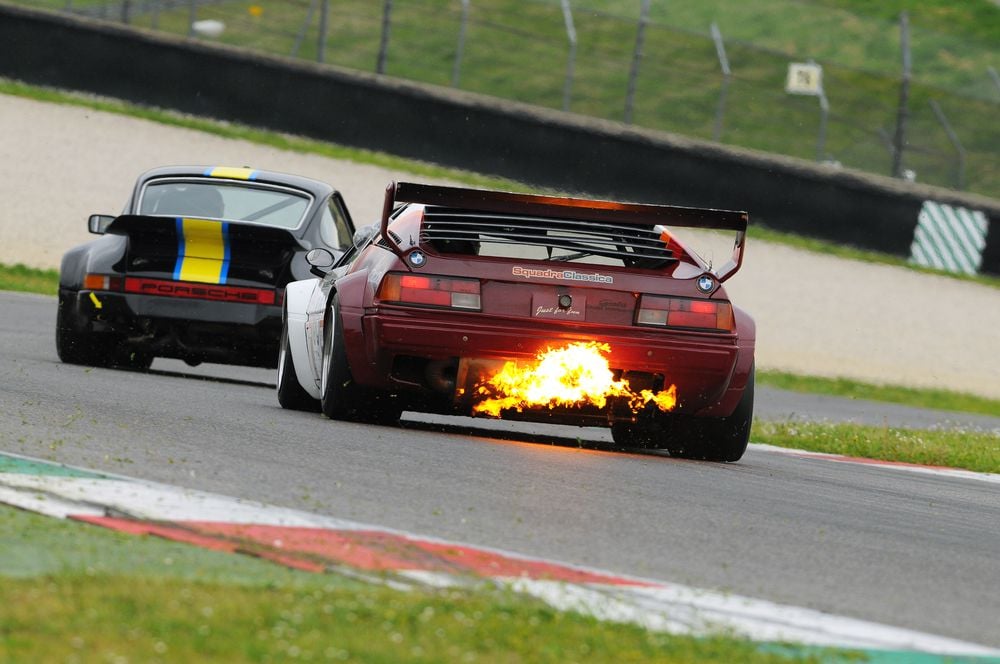 Flames exiting exhaust due to a backfire.
Flames exiting exhaust due to a backfire.
What Causes An Engine To Backfire Through The Exhaust?
An exhaust system can backfire for several reasons, but it tends to boil
down to one thing — an incorrect air-fuel mixture that causes the
unpleasant loud popping sound.
From faulty spark plugs to dirty air filters to problems with the
distributor cap, the leading causes of an exhaust backfire are as follows:
1) Engine Running Rich
When more fuel flows into the engine than necessary for efficient burning,
it's called an abundant air-fuel mixture — or running rich.
A dirty air filter is one of the main reasons for excess fuel in the
engine. However, other factors contribute to an excessive air-fuel mixture.
Affluent engines stand more chance of creating an explosion due to
fast-burning flames, meaning the fuel combustion process isn't complete
before it heads to the exhaust system.
If the exhaust valve is open on the cylinder, the extra air causes the
unburned fuel to explode, creating a loud popping noise (i.e., car
backfire).
2) Engine Running Lean
Conversely, a lean air-fuel mixture can also cause an exhaust backfire.
Instead of too much fuel, there is excess air, slowing the engine
combustion process and backfiring because the unburned fuel sits in the
exhaust valve when it opens.
3) Engine Timing Is Off
Off engine timing can cause car backfires called retarded timing.
In this case, it means the fuel compression ignition exhaust located in the
cylinder head isn't coordinating with the cylinder block at the bottom.
Incorrect timing causes the ignition cycle to start later in the combustion
chamber, burning the fuel as the exhaust valve opens.
4) Spark Plugs Problems
Your car engine relies heavily on its spark plugs during the ignition
process.
If broken, they may engage at the wrong time or may even fail to fire
altogether.
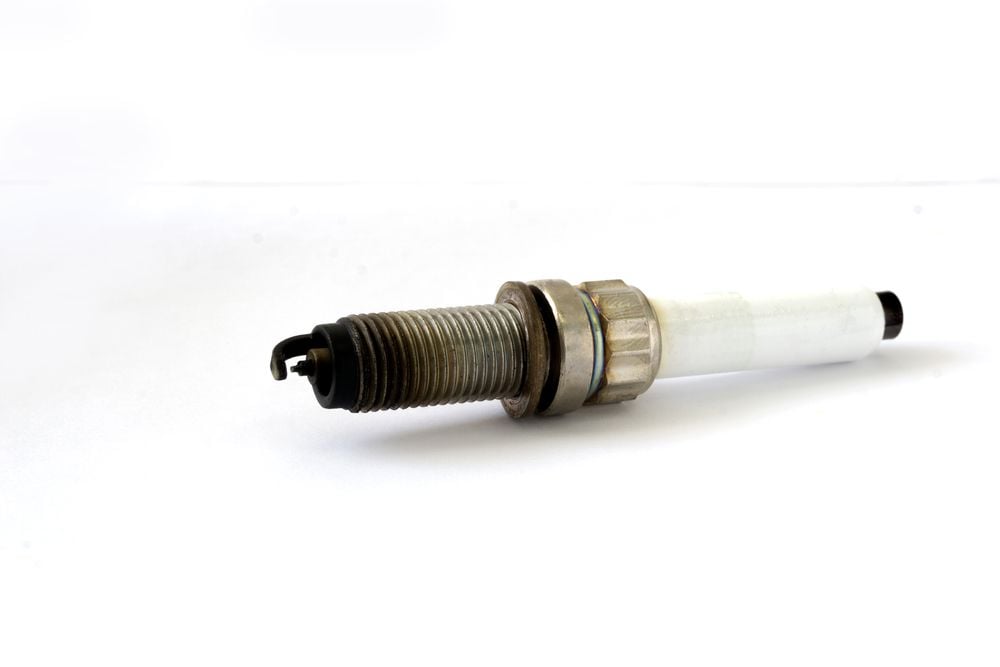 Fouled spark plugs could cause backfires.
Fouled spark plugs could cause backfires.
Can A Bad Sh4ark Plug Cause Backfire?
A problem with a spark plug will almost always lead to a car backfire.
They can break or become faulty for many reasons, but the three most common
are:
Carbon Builduh4
Carbon tracking occurs in systems where distributor caps or ignition coils
are present.
In the former, environmental factors can trigger the spark to transfer from
one spark plug wire to the others. Over time, a carbon track materializes,
giving the electrical pulse a shortcut and leading to a misfire.
In the latter, carbon tracking can be seen on spark plug wires and the
attached ignition coils, resulting in the spark taking the wrong path,
reducing the electricity heading to ignite the fuel, and producing leftover
fuel in the cylinder head.
Distributor cap problems
If your car's spark plugs don't have ignition coils, a distributor cap and
wire set are used to send the electrical pulse to the spark plugs, igniting
the fuel in the cylinder before sending it to the exhaust manifold.
A cracked distributor cap can create a spark in the track toward the
incorrect tube due to trapped moisture, causing a backfire when the wrong
cylinder fires while the exhaust valves are open.
Ideally, you should replace the distributor cap at every service to ensure
you don't encounter this problem.
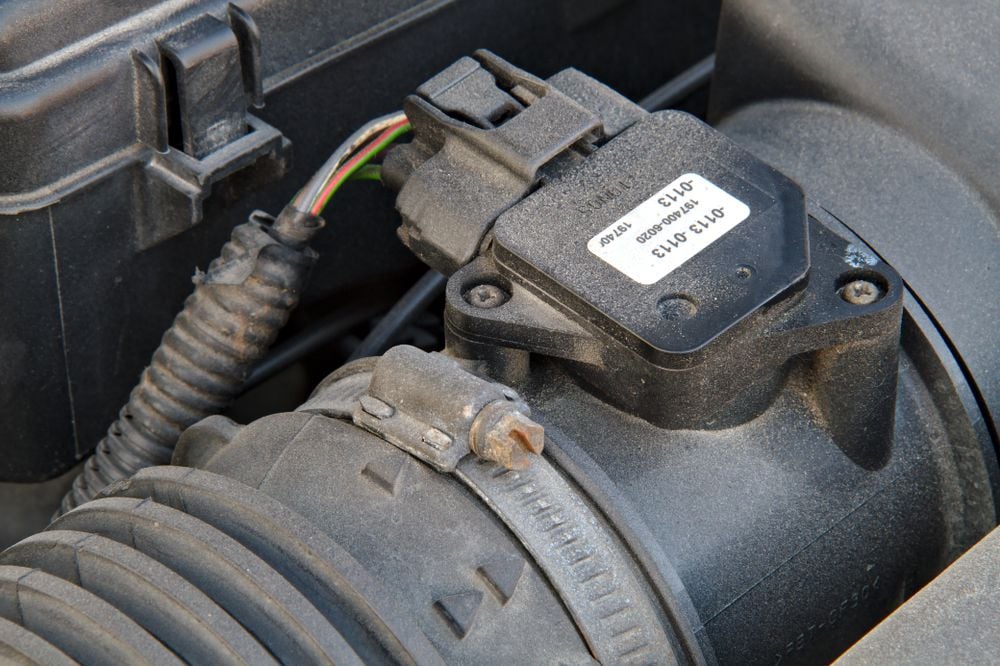 A faulty mass airflow sensor could cause a backfire.
A faulty mass airflow sensor could cause a backfire.
5) Faulty Engine Sensor
Cars come with a Mass Airflow Sensor, which is an integral part of the air
intake system.
The sensor calculates the fuel the engine requires based on various
environmental conditions.
When the sensor malfunctions, the fuel injectors might not send enough
fuel, causing a fuel ratio imbalance and car backfiring.
6) Leaks In The Exhaust System
To maintain the proper air-fuel mixture, your exhaust system must remain
intact.
A leaking exhaust valve allows more air into the system than preferable,
resulting in a lean air-fuel ratio, which eventually leads to impaired
combustion and a car backfire.
7) Problems With The Valve Train
The valve train opens and closes the exhaust valves, allowing air and fuel
to enter the combustion chamber.
Problems arise when the exhaust valve opens at the wrong time or isn't
sealed correctly.
If left unresolved, valve train issues cause can lead to a build-up of
carbon in the fuel system, causing an exhaust backfire and potentially
other engine issues.
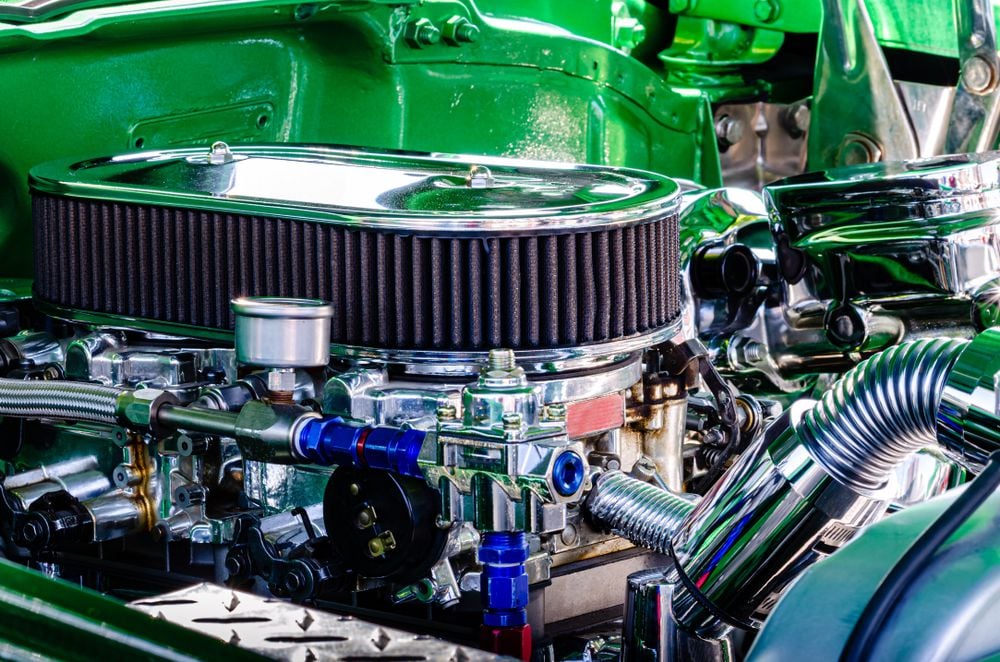 Carburetor can cause backfires if they are not tuned properly.
Carburetor can cause backfires if they are not tuned properly.
What Causes Backfire Through Carb
The carburetor or carb regulates fuel and air flow to your car's engine.
Although many modern vehicles have dumped carburetors in favor of car's
computer-controlled fuel injectors, older vehicles still include this
component, which requires maintenance and cleaning to prevent car
backfiring.
Carbs usually backfire due to the following:
-
Lean fuel air ratio —
Too much air without enough fuel can create backfires in the intake
valve. The explosion carries itself through the carburetor, making a
loud noise. Vacuum leaks or ineffective carb adjustments often cause
this problem.
-
Improper ignition timing —
The ignition system delivers the electrical current to the car's spark
plugs. They must be sent at the right time. Otherwise, the engine idles
roughly and backfires. You can check the optimum ignition timing in
your car's manual and correct it by adjusting the distributor.
-
General fuel system issues —
A dirty fuel filter or faulty pump can present fuel delivery issues,
causing a too-lean fuel mixture and backfiring as it flows through the
carburetor.
Backfire Through Exhaust When Starting
If your exhaust pipe is backfiring upon startup, it's probably running
rich.
The abundant air-fuel mixture causes the unpleasant sound as the combustion
process isn't finished when it lands in the exhaust system.
Backfire Through Exhaust At Idle
A loud sound through the exhaust pipe at idle tends to occur due to a
sudden fuel pressure drop which affects the fuel-air ratio.
Less fuel is given to the combustion process, decreasing the efficiency and
leaving unburnt fuel behind, causing an exhaust backfire.
Ignition system leaks can also cause backfires at idle. Again, it's due to
the change in vehicle fuel-to-air mixture.
What Causes Engine Backfire On Acceleration
If your car backfires on acceleration, it's usually caused by one of the
following:
-
Low fuel pressure
-
Imperfect ignition timing
-
Damaged spark plug wire
-
Faulty fuel system
-
Incorrect fuel-air ratio
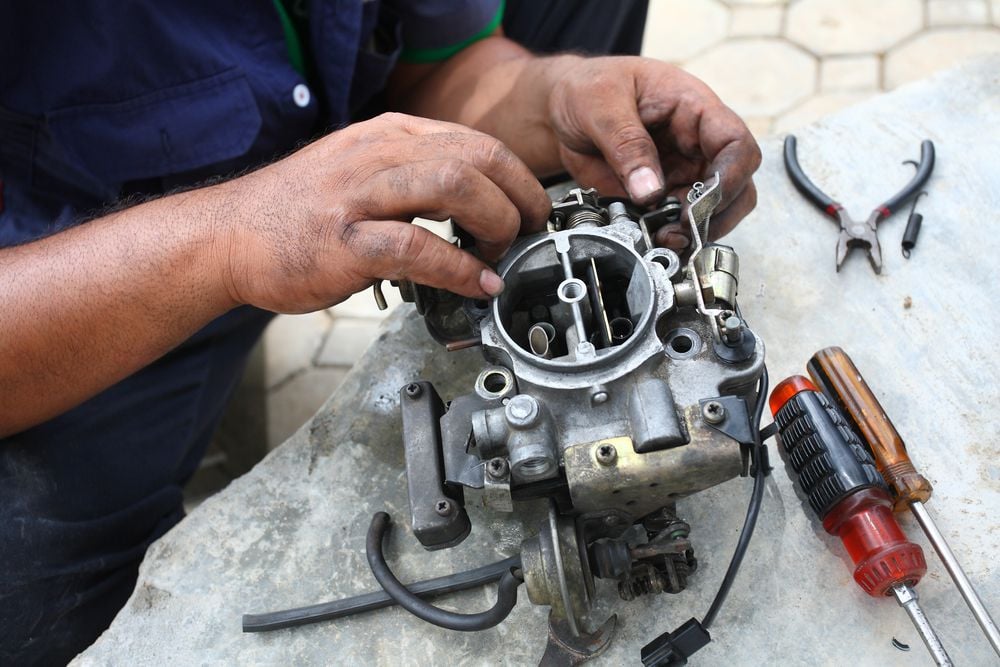 A mechanic rebuilding a faulty carburetor.
A mechanic rebuilding a faulty carburetor.
How Do I Stop My Exhaust From Backfiring?
Once you've identified the cars backfire root cause, fixing the problem
could be as simple as:
-
replacing the oxygen sensor. Sometimes a faulty oxygen sensor is the
culprit. It's responsible for regulating the fuel ratio, combustion,
and engine timing.
-
changing your engine timing belts. This component ensures precision. If
it's worn or frayed, you should replace it as soon as possible.
-
checking your spark plug wires and the plugs themselves.
-
replacing the distributor cap if it's cracked or otherwise damaged.
-
looking at your fuel system, especially the injectors and pump.
How To Get Backfire From Exhaust
While unintentional backfires are a bad sign (after all, they tend to point
to a more significant issue), intentionally making your exhaust backfire
isn't terrible.
The main issue? Constantly backfiring can add additional engine damage over
time, and you'll suffer decreased fuel efficiency.
Before deciding whether you should make your exhaust backfire, think about
the legalities — many states have made it illegal because it alarms
pedestrians and other road users.
That said, you can force a misfire through the exhaust pipe by:
-
Hit a high RPM —
Backfires are easier to achieve at higher RPMs. While you shouldn't
constantly drive near the red line, it's okay now and then. Prematurely
shift down a gear to cause a rev spike and the tell-tale popping noise.
-
Remove the muffler —
Simply take out the component that dampens your exhaust's sound.
-
Reprogram the ECU —
Your car's computer controls how your engine behaves. So, rewriting the
code allows you to change the fuel-air mixture, timing, and speed of
the injectors, making it easier to backfire.
Conclusion
You should now have a very clear understanding of the causes behind
backfiring through the exhaust. Everything from spark plug problems to
dirty filters to carbon tracking can be the culprit.
Always diagnose the problem before trying to fix the issue. That way, you
won't waste your time or money on unnecessary repairs.